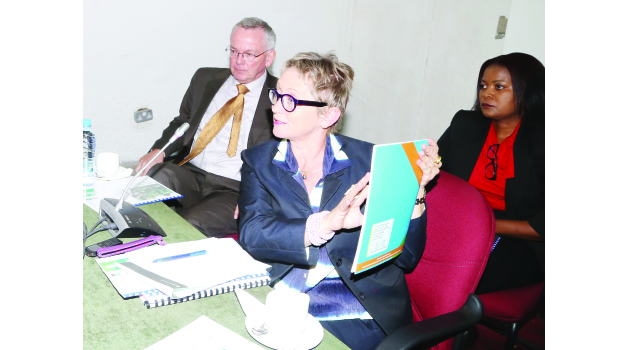By REBECCA MUSHOTA –
THE World Bank has said that Zambian youths lose some US$200 million in terms of lost wage income due to unemployment and a lack of skills.
This is according to the findings of the World Bank report conducted in Zambia, Lesotho and Botswana on job readiness of school graduates and youth employment.
World Bank country manager Ina Ruthenberg said this at a dissemination meeting in Lusaka yesterday.
Ms Ruthenburg said there were a number of factors influencing youth unemployment and lack of skills, but that education was the most critical one.
Education enrollment unfortunately, did not guarantee learning and skills development.
The quality of education, especially teaching and learning 21st century skills such as problem-solving, communication, teamwork, Information Communication Technology was key to equipping youth with competencies and skills demanded by employers.
Ms Ruthenburg said that lack of jobs for youths was a concern for the Government and the public.
Ms Ruthenburg said there was need to improve the current practice in the education and social welfare systems to be able to produce future workers with the competencies and 21st century skills that would help Zambia to develop as well as to give out-of-school youth a second chance at becoming productive citizens ofsociety.
There was need for new thinking in the way schools were organised, the curriculum, teacher preparation and training, classroom instruction and the way pupils were are taught.
The youth required opportunities to develop certain practical and vocational skills.
Ms Ruthenburg said the two studies on the readiness of school graduates and youth employment were important because about a half of the population in Zambia is under the age of 15, which is about the age entering secondary education.
About 44 per cent of them had the opportunity to be enrolled in secondary education and only about a third of them complete secondary education and less than half of them pass the exams.
Two thirds of secondary school graduates were not employed and most of those out of school had no second chance to complete basic education.
Early pregnancy and marriage as well as extreme poverty in rural areas resulted in girls and rural pupils doing worse in completing their secondary education.







